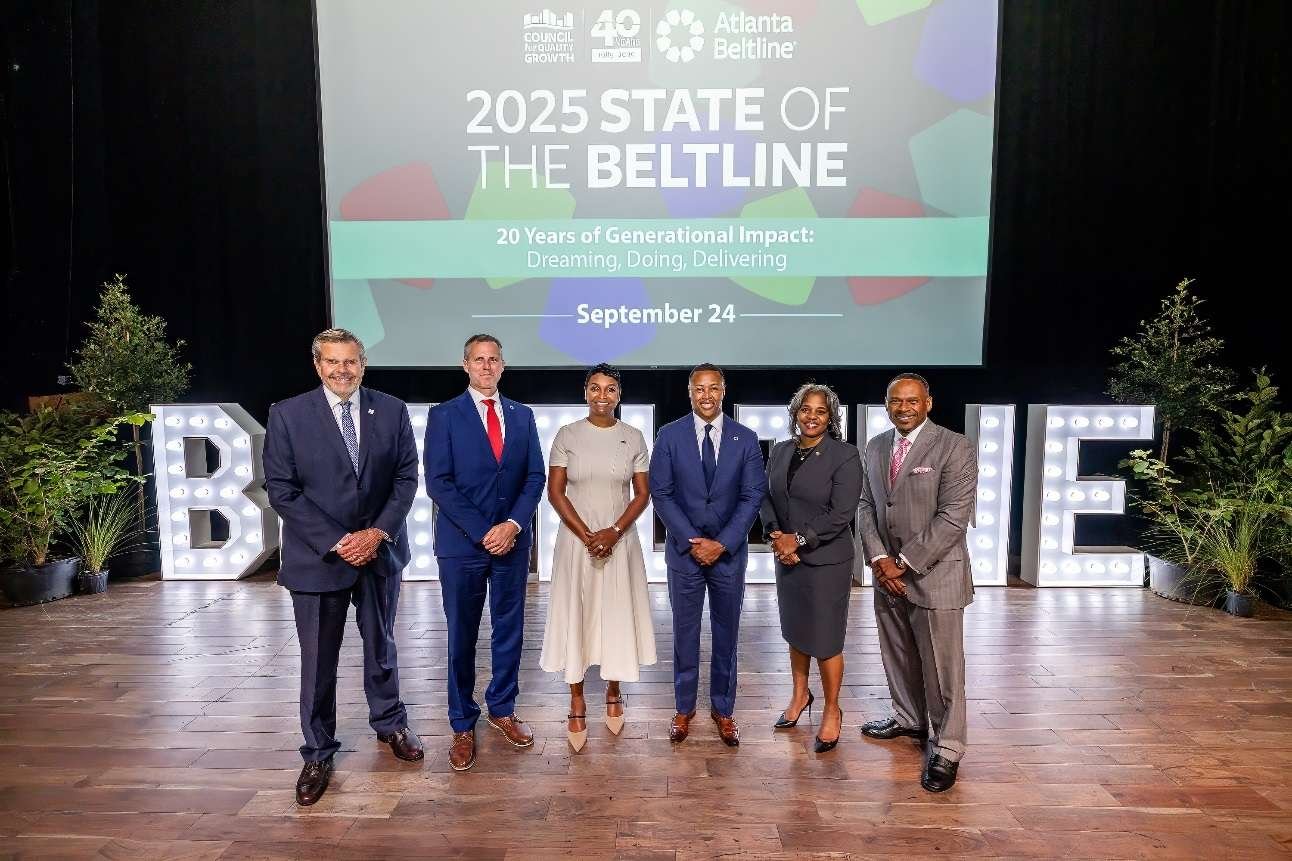By Milton Kirby | Atlanta, GA | September 25, 2025
Atlanta — The Atlanta Beltline celebrated two decades of progress on Wednesday with its 2025 State of the Beltline address, drawing more than 350 leaders, developers, and community voices to The Eastern.
The breakfast event, hosted by the Council for Quality Growth, highlighted the Beltline’s growing economic, cultural, and social impact across the city. Clyde Higgs, President and CEO of Atlanta Beltline, Inc. and 2025 Council Chair, joined Anna Roach of the Atlanta Regional Commission for a fireside chat reflecting on the project’s past and future.
Affordable housing and lasting investment
Higgs credited early visionaries who launched the Beltline in 2005, noting that 76% of its affordable housing target has already been met. The project is on pace to surpass 7,000 units by 2030. He pointed to the City Council’s approval of a Special Service District in 2021, which unlocked $350 million in local and leveraged funding. “That’s how we can now say definitively we will finish the loop by 2030,” Higgs said.
The economic impact is substantial: $800 million in public investment has spurred nearly $10 billion in private development and created over 26,000 permanent jobs. Higgs also announced a $2 million Local Developer Incentive Fund to help small businesses and legacy entrepreneurs remain competitive along the trail. “We need to make sure we are preserving the culture, the legacy of Atlanta, and making sure everyone is winning because of this investment,” he said.
Community connections and mobility
City of Atlanta Chief Operating Officer LaChandra Burks opened the program, recalling the skepticism that surrounded the Beltline’s early years. “Twenty years ago, we were dreamers gathered around the table, determined to reconnect Atlanta,” she said. “With each challenge came another chance to deliver on our promise that every Atlantan will have a place on the Beltline and a stake in the city’s future.”
Atlanta Beltline COO Ruben Brooks shared that 12.8 miles of trail are now complete, with six construction projects in motion. By mid-2026, 18 miles are expected to be open, including the Southside Trail ahead of the World Cup. “We are accelerating like never before, and we do not intend to stop,” Brooks said.
Philanthropy and equity
Rob Brawner, Executive Director of the Atlanta Beltline Partnership, highlighted $225 million in philanthropic support from foundations, corporations, and individuals. He pointed to the Legacy Resident Retention Program, which has helped more than 270 homeowners keep property taxes at 2019 levels. “At its core, the Beltline is about people,” Brawner said.
Looking ahead
Higgs closed by reminding attendees that the Beltline is “the people’s project,” urging continued collaboration. “Don’t assume we’ve got it covered—we still need you. Challenge us, push us, and then when it’s time to make a decision, get behind it and go.”
As the Beltline advances toward its 2030 completion, the project’s trails, parks, housing, and business investments continue to reshape Atlanta, positioning the city for a more equitable and connected future.
Please consider supporting open, independent journalism – no contribution is too small!
